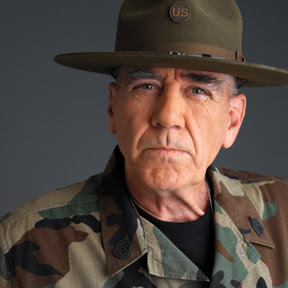To the old aphorism “The more you know, the more you know you don’t know,” I would like to add: “…and neither does anybody else.” None of our best historians understand all of history. They specialize. They study what happened in a particular time and place. They try to be objective in a Jack Webb-style: “Just the facts, Ma’am,” but that can make for dull reading. So they adopt the writing style of a storyteller. They humanize the main characters, illuminating both virtues and flaws. They make judgements. If they didn’t, they wouldn’t sell many books. If they’re also teachers, and many are, their students would fall asleep.
Like the late star of Dragnet, historians are trying to solve a mystery, but unlike him they’re not going to arrest a perpetrator. They may, however, tarnish a reputation here and burnish one there. Such may be their intent when beginning their research. The best historians try hard to be unbiased, but they know they’re human and will always fall short of perfect impartiality. Others only offer a pretense of impartiality.
 |
| Bias or fact? |
Another human factor that may work to distort history I will call peer pressure. When historian colleagues all tend to interpret the events of a particular time and place in a particular way, there’s a strong tendency to go along. One might dare to offer a slightly different shade of meaning but to go further would risk being shunned or even attacked.
When I taught history I’d do what many teachers do and parse the word, suggesting it can mean: “his story.” as if there may be other stories offering different perspectives on the same events. Feminists like to parse the word too, but emphasizing the “his” part as biased in favor of men, and that students might want to think of it as “herstory” as well.
Never was I taught history as a separate subject until fourth grade when Sister Charles Paul passed out the first history books at St. William’s School in Tewksbury, Massachusetts. By the end of September I’d read all of it and longed for more, but no more came along. I don’t remember getting any more history texts until I went to high school and had Western Civilization I and II. Then it was US History in junior year and that was it until college. Never did I sense a love of history in my teachers though. Many high schools gave US History classes to football coaches who had little or no interest in them.
After my risk of getting drafted declined in 1971 I dropped out of college, then went back in ’73 after deciding to become a teacher. For that I needed degrees and took a few more uninspiring history courses, so my interest in history had to be sated by my own research. After being horrified watching the Adolph Eichmann trial with my father in 1961, I learned all I could about the Holocaust. Then the Vietnam War affected everyone in my demographic as my best friend and others I grew up were sent there. Some died and all were profoundly changed, so I learned all I could about that as well. Thus did those two phases of history became my own specialities.
 |
| D-Day, WWII |
When students came to me with little or no historical perspective or interest, I devised methods to help them to fix themselves in time. Digital imagery became available in the ’90s, so I encouraged students to bring in pictures of their ancestors to be scanned. Then they digitally constructed horizontal timelines of the 20th century with pictures of their parents, grandparents, and great-grandparents across the top above the years corresponding to their lifespans. Across the bottom they put images of major world events occurring during those lifepans. Just as Vietnam had dominated my generation, World War II and the Great Depression affected the lives of their grandparents and/or great-grandparents. World War I affected their great-great-grandparents, and so forth. They could also import pictures of presidents who served during those lifespans.
 |
| Ellis Island |
After that exercise, study of relevant historical occurrences became personalized. My hope was they would gain a deeper understanding of how world and national events can have enormous effects on the lives of ordinary people. Many students were thus motivated to question surviving ancestors about those events. Thus they’d fix family members in time and gain a deeper understanding of where they fit in too.
Last week’s column concerned fixing students in space by learning geography. My hope was they would leave my class having merged the two skills. They would be able to visualize where their ancestors came from, know when they came here, and even why. They’d be motivated to research further back in time as well as further away in space, and then realize how they came to be here — living and speaking English in rural Maine.










































